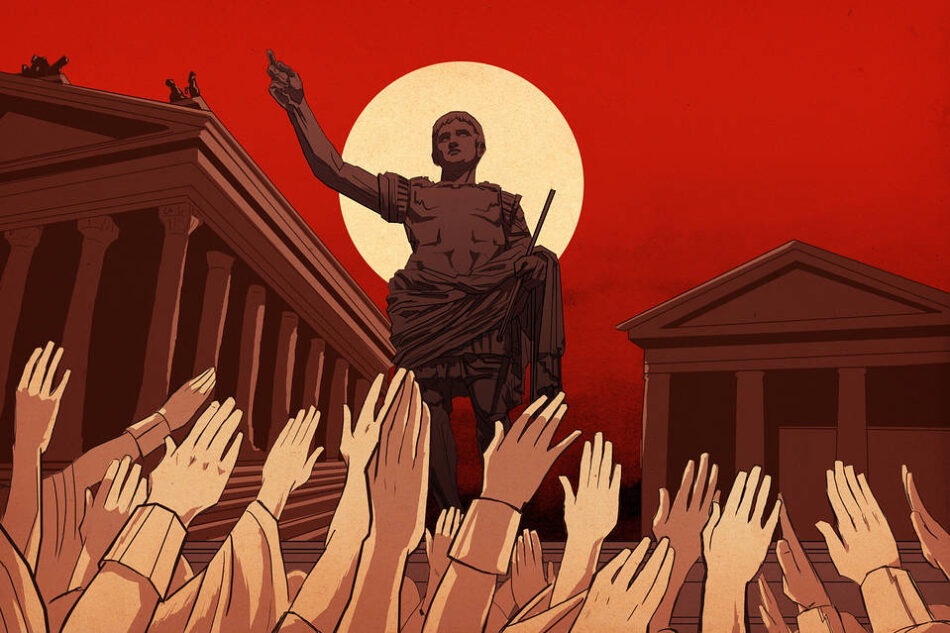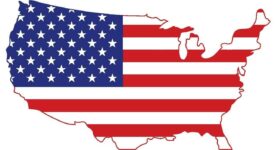The top 10 dictators of the world, their owned country and their works for their country and the world, are a group of individuals who have gained notoriety for their authoritarian rule, controversial actions, and impact on their countries and the international community. These dictators have been known for their suppression of political opposition, restrictions on media freedom, human rights abuses, corruption, and erosion of democratic institutions.
While they may have implemented policies and initiatives that they claim are aimed at benefiting their countries and the world, their actions have often been met with widespread criticism and controversy. In this article, we will explore the top 10 dictators of the world, their owned country and their works for their country and the world, and delve into the challenges and consequences of their authoritarian rule.
Table of Content
The Top 10 Dictators of the World
Kim Jong-un – North Korea

The enigmatic leader of North Korea, Kim Jong-un, rose to power in 2011, succeeding his father, Kim Jong-il. Known for his oppressive regime, Kim Jong-un has been criticized for human rights abuses, nuclear weapons development, and aggressive military actions. Despite international sanctions and isolation, Kim Jong-un has focused on consolidating his power and strengthening his grip on the isolated nation.
Vladimir Putin – Russia

Vladimir Putin, the president of Russia, has been a prominent figure in global politics for over two decades. Known for his authoritarian style, Putin has been accused of suppressing political dissent, restricting media freedom, and engaging in military interventions in neighboring countries. However, he is also credited with reviving the Russian economy, restoring national pride, and challenging Western dominance in global affairs.
Xi Jinping – China

Xi Jinping, the General Secretary of the Communist Party of China, has consolidated power in China to an extent not seen since the era of Mao Zedong. Under his leadership, China has pursued an assertive foreign policy, economic reforms, and a crackdown on corruption. However, Xi Jinping’s rule has also been criticized for its human rights violations, censorship, and suppression of political dissent.
Bashar al-Assad – Syria

Bashar al-Assad has been the President of Syria since 2000, succeeding his father Hafez al-Assad. His rule has been marked by a brutal civil war that has devastated the country, resulting in widespread human rights abuses, displacement of millions of people, and alleged use of chemical weapons. Assad’s government has faced accusations of war crimes and crimes against humanity, while he has remained defiant and maintained his grip on power.
Recep Tayyip Erdogan – Turkey

Recep Tayyip Erdogan, the President of Turkey, has been a polarizing figure in Turkish politics for years. Initially seen as a reformist and democrat, Erdogan has been accused of undermining democratic institutions, suppressing dissent, and consolidating power. However, he has also been credited with boosting Turkey’s economy and infrastructure development, as well as challenging the influence of the military in politics.
Nicolás Maduro – Venezuela

Nicolás Maduro, the President of Venezuela, has been a controversial figure, with his country grappling with an economic and humanitarian crisis. Maduro has been accused of undermining democratic institutions, cracking down on political opposition, and overseeing economic mismanagement. However, he has also maintained support from certain segments of the population and has been critical of foreign interference in Venezuela’s affairs.
Read More: The Top 10 Most Intelligent Presidents in the World!
Alexander Lukashenko – Belarus

Alexander Lukashenko has been the President of Belarus since 1994, making him one of the longest-serving dictators in the world. His rule has been marred by allegations of human rights abuses, suppression of political opposition, and restriction of media freedom. Lukashenko’s government has faced widespread protests in recent years, with calls for democratic reforms and greater political freedoms.
Rodrigo Duterte – Philippines

Rodrigo Duterte, the President of the Philippines, has been known for his controversial and authoritarian style of governance. Dubbed as the “Punisher,” Duterte has been accused of human rights abuses, particularly in his brutal war on drugs, which has resulted in thousands of extrajudicial killings. Despite the criticism, Duterte has maintained a strong base of support among certain segments of the population for his tough stance on crime and corruption.
Daniel Ortega – Nicaragua

Daniel Ortega has been the President of Nicaragua since 2007, with a history of leading the country both as a revolutionary leader and an authoritarian ruler. Ortega has been accused of cracking down on political dissent, restricting media freedom, and consolidating power within his family. However, he has also been credited with implementing social programs and reducing poverty levels in Nicaragua, garnering support from certain sectors of the population.
Paul Biya – Cameroon

Paul Biya has been the President of Cameroon since 1982, making him one of the longest-serving dictators in Africa. His rule has been marked by allegations of human rights abuses, corruption, and marginalization of opposition voices. Biya has been criticized for his autocratic style of governance and for failing to address the socio-economic challenges faced by Cameroon.
Their Works for Their Country and the World
While the top 10 dictators of the world have been known for their controversial and authoritarian rule, they have also implemented policies and initiatives that they claim are aimed at benefiting their countries and the world at large. Some of the works that they have undertaken include:
Economic reforms: Several dictators have focused on economic reforms, claiming that they are aimed at improving the economic prospects of their countries. For example, Vladimir Putin has been credited with reviving the Russian economy after the post-Soviet collapse, implementing policies to boost industries and increase foreign investment. Xi Jinping has pursued economic reforms in China, aimed at modernizing the economy and reducing poverty levels.
Infrastructure development: Some dictators have prioritized infrastructure development as a means to boost their countries’ growth and development. Recep Tayyip Erdogan has implemented large-scale infrastructure projects in Turkey, including the construction of airports, highways, and bridges, to improve the country’s connectivity and economic prospects.
Nationalistic agendas: Many dictators have promoted nationalistic agendas, aimed at restoring national pride and sovereignty. Kim Jong-un has pursued a policy of “self-reliance” in North Korea, aiming to develop the country’s economy and military capabilities. Bashar al-Assad has portrayed himself as a defender of Syrian sovereignty against foreign interference, particularly during the civil war.
Social programs: Some dictators have implemented social programs claiming to improve the well-being of their people. Nicolás Maduro has implemented social welfare programs in Venezuela, aimed at providing healthcare, education, and housing to the marginalized sections of society.
However, it’s important to note that these initiatives are often marred by allegations of corruption, lack of transparency, and suppression of dissent, raising concerns about their true intentions and impact on the welfare of the people.

Controversies and Criticisms
The top 10 dictators of the world have also faced widespread criticism and controversy for their authoritarian rule and alleged human rights abuses. Some of the controversies and criticisms that have been associated with these dictators include:
Human rights abuses: Many of these dictators have been accused of violating human rights, including suppressing political opposition, restricting media freedom, and cracking down on dissent. Bashar al-Assad has faced accusations of war crimes and crimes against humanity, including the use of chemical weapons against civilians in the Syrian civil war. Rodrigo Duterte has been accused of extrajudicial killings and human rights abuses in his war on drugs in the Philippines. Daniel Ortega has been accused of suppressing political dissent and restricting media freedom in Nicaragua.
Corruption: Corruption has been a pervasive issue in the regimes of some of these dictators. For example, Vladimir Putin has faced allegations of widespread corruption and embezzlement of state funds in Russia. Paul Biya has also been accused of corruption and mismanagement of state resources in Cameroon.
Lack of democratic institutions: Many of these dictators have been criticized for undermining democratic institutions, such as the judiciary, media, and civil society, to consolidate their power. Xi Jinping has been accused of cracking down on political dissent, media freedom, and civil liberties in China. Recep Tayyip Erdogan has been criticized for eroding democratic checks and balances in Turkey and consolidating power in the presidency.
Suppression of political opposition: Several of these dictators have been known for their harsh treatment of political opposition. Nicolás Maduro has been accused of imprisoning and silencing political opponents in Venezuela. Kim Jong-un has been criticized for the lack of political freedoms and human rights in North Korea, including the imprisonment and execution of political dissidents.
International sanctions: Due to their controversial actions and human rights abuses, some of these dictators have faced international sanctions from the global community. Bashar al-Assad has faced sanctions from various countries and international organizations for his role in the Syrian civil war. Nicolás Maduro has also faced sanctions for his authoritarian rule in Venezuela.
Final Thoughts
The top 10 dictators of the world, their owned country and their works for their country and the world, have been known for their controversial and authoritarian rule. While they may have implemented policies and initiatives that they claim are aimed at benefiting their countries and the world, these actions have often been marred by allegations of human rights abuses, corruption, suppression of political opposition, and erosion of democratic institutions. It is important to critically assess the impact of their rule on the welfare of the people and uphold the values of democracy, human rights, and rule of law in the global community.
FAQs
Are there any positive aspects to the works of these dictators?
While some of these dictators have claimed to implement policies aimed at improving their countries’ economic prospects or well-being of their people, these initiatives are often marred by allegations of corruption, lack of transparency, and suppression of dissent. It is important to critically assess the true intentions and impact of these policies on the welfare of the people.
How do these dictators maintain their power?
These dictators often maintain their power through various means, including suppression of political opposition, restriction of media freedom, manipulation of democratic institutions, and use of force or intimidation tactics.
What are the consequences of their authoritarian rule?
The consequences of their authoritarian rule can include human rights abuses, erosion of democratic institutions, lack of political freedoms, corruption, international sanctions, and widespread criticism and controversy both domestically and internationally.
What are the challenges faced by the countries under their rule?
The challenges faced by the countries under their rule can include lack of political freedoms, restrictions on media freedom, human rights abuses, corruption, economic challenges, and social inequality.








